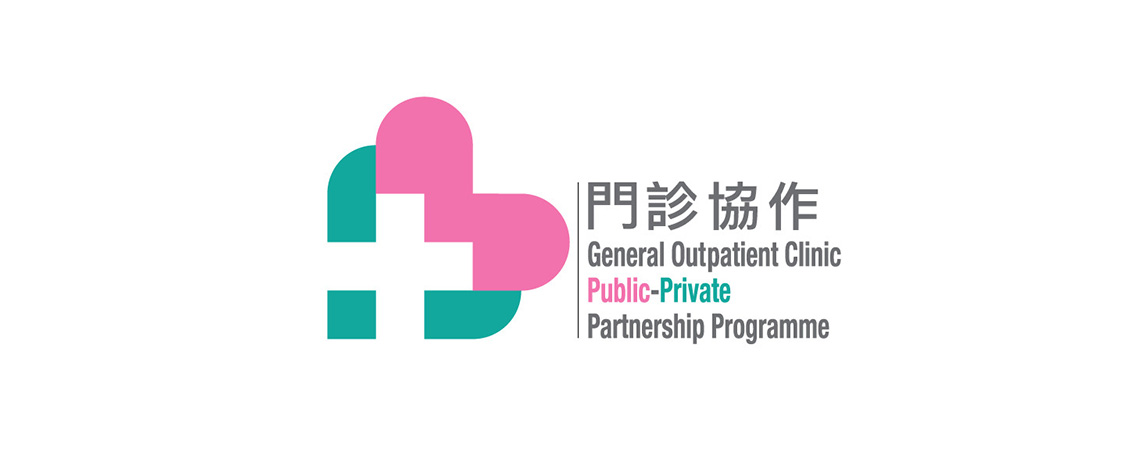Department of Health

- The Government will subsidise eligible persons to receive screening service for prevention of colorectal cancer.
- Electronic Health System (eHealth) facilitates authorised public and private healthcare providers in accessing and sharing participants' electronic health records for providing timely treatment and follow up.
Frequently asked questions
-
Is it a pre-requisite to use Clinical Management System (CMS) On-Ramp or other software provided by the Electronic Health Record (eHR) Office or any electronic medical record (eMR) systems in order to join eHealth and PPP programmes (e.g. Colorectal Cancer Screening Program)?Expand
- Participation in eHealth serves as a facilitation in participating PPP.
- There is no absolute pre-requisite for using any eMR system to join eHealth or PPP. Minimal IT requirements for connecting with eHealth are set out by eHR Office.
- Data required to be collected for certain PPP e.g. Colorectal Cancer Screening Program will be directly captured in the PPP platform (not directly from any local eMRs).
Hospital Authority

- The Programme was launched in 2014, and has been rolled out to cover all 18 districts in Hong Kong. It aims to help the Hospital Authority (HA) manage demand for Family Medicine Clinic (FMC) (formerly General Outpatient Clinic (GOPC)) service, enhance patient access to primary care services and provide choice to patients having follow-up at HA FMCs for receiving primary care services from the private sector. It also helps promote family doctor concept and foster the use of the territory-wide Electronic Health System (eHealth).
- The Co-care Service Model has been introduced under GOPC PPP since 2021, with targeted patients extended from HA FMCs to designated Specialist Outpatient Clinics who are clinically stable.
- Each participating patient will receive up to 10 subsidised visits per year, including medical consultations covering both chronic and episodic illnesses; drugs for treating their chronic conditions and episodic illnesses to be received directly from participating private doctors at their clinics; and upon participating private doctor’s referral, to receive specified laboratory tests and Electrocardiography (ECG) at designated private laboratories, while X-ray examination will be conducted at HA.

- The Radi Collaboration Project, implemented since 2012, provides computed tomography (CT) and/ or magnetic resonance imaging (MRI) services to specific groups of cancer patients under the care of the HA. Clinically eligible patients may, upon doctors' referral, receive radiological examinations from participating service providers.
- Eligible patients are invited to join the Project on a voluntary basis under full subsidy and can choose their service provider out of the HA's list.
- Under patients' consent, examination results will be sent back to the HA through eHealth for clinicians to formulate subsequent care and treatment plan.

- To meet the growing demand from cataract patients and shorten the waiting time for cataract surgery, the CSP was launched in February 2008 to subsidise eligible patients to undergo cataract surgeries in the private sector.
- Participating private healthcare providers are allowed to input patients' clinical information and view their patients' medical records kept at the HA through eHealth.

- To cater for the growing demand of haemodialysis service for end-stage renal failure patients, the HD PPP was launched in March 2010.
- Clinically suitable end stage renal disease patients, as assessed by Nephrologists of the HA, are invited to join the Programme voluntarily to receive HD treatment in one of the partner community HD centres of their choice.
- Through the eHealth, community HD providers can access the clinical information of participants while the community HD treatment records are made available to clinicians of the HA taking care of the patients.

- To cater for the growing demand for colon assessment, the HA has launched the Colon PPP to provide subsidy to eligible patients to receive specialist services including clinical assessment, colonoscopy procedure and post-procedural management services. For patient requiring biopsy and/or polypectomy, the performing private specialist will send tissue specimen for histopathology examination and discuss follow-up treatment plan with the patient if appropriate.
- Subject to the availability of programme quota, the HA has started inviting patients who are currently on the waiting list for colonoscopy in public hospitals, classified as stable cases, and fit for home bowel preparation and colonoscopy under ambulatory setting by batches according to their appointment booking dates and clinical conditions.
- Invited patients have to return the patient reply slip and then attend designated HA colon nurse clinics to undergo assessment. Patients also need to register for the eHealth so that patients' medical records and investigation results can be shared between the HA and participating private doctors.

- The Programme was launched by the HA in 2019 with aims to provide choice to Glaucoma patients for receiving private specialist services in the community.
- Target participants of the Programme are clinically stable glaucoma patients currently taken care of by HA Ophthalmology Specialist Outpatient Clinics. Eligible patients will be invited by the HA for voluntary participation.
- Each participating patient will receive up to four subsidised consultations per year including specified glaucoma drugs; and investigation services of up to one Visual Field test and one Optical Coherence Tomography scan per year to be provided by participating private ophthalmologists.